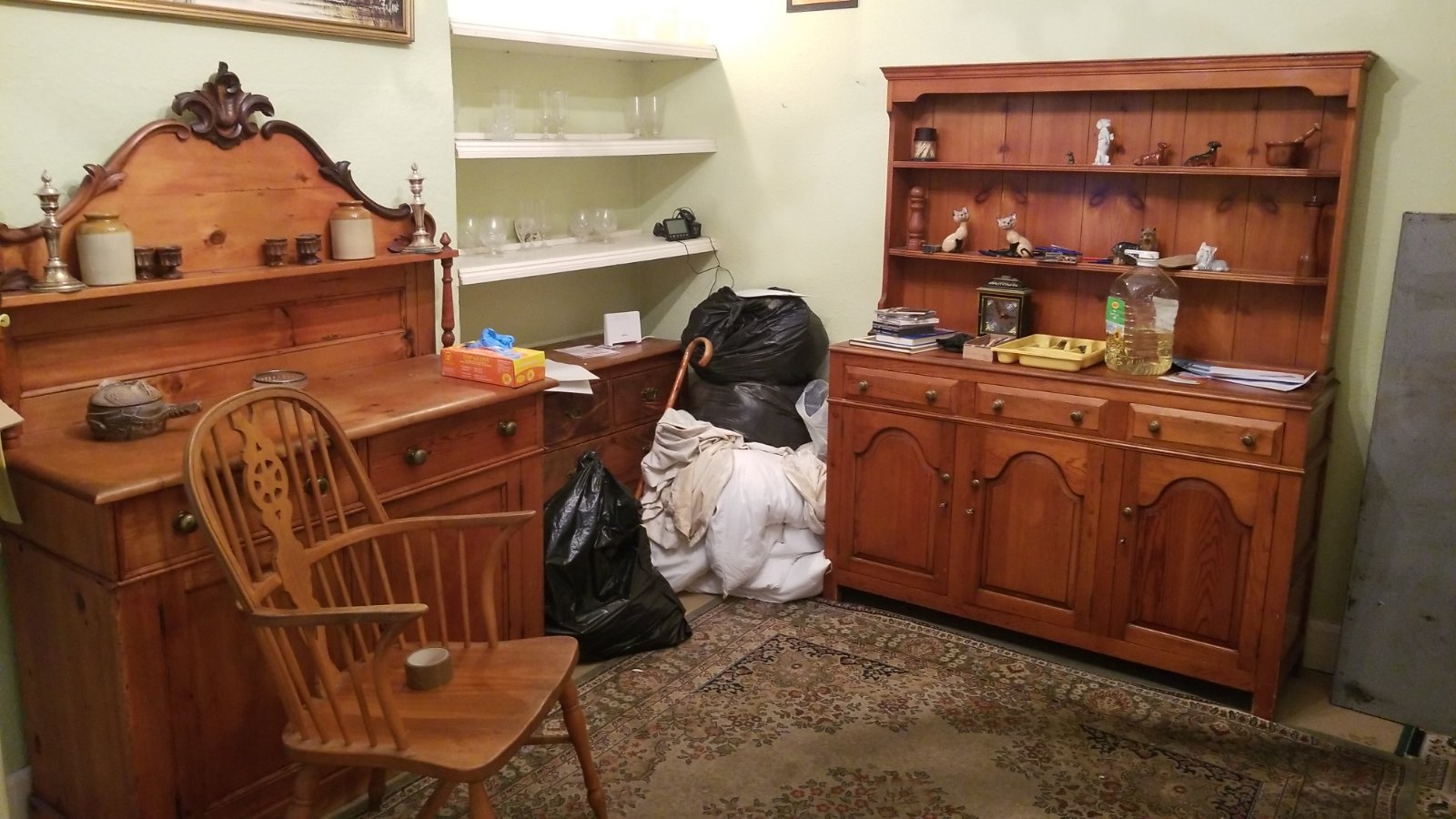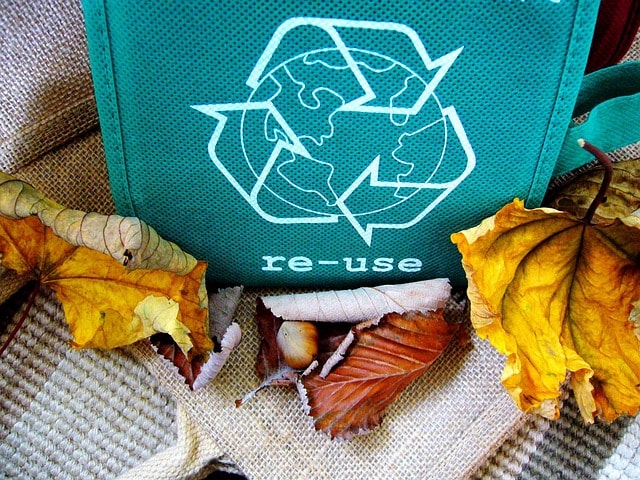House clearance is the removal of unwanted items, clutter and waste from a property to get it back to a clean tidy state. Many people ask “How does house clearance work?”
It’s a simple process done by professional house clearance companies who specialise in removing unwanted belongings responsibly and quickly. In this guide we will explain everything you need to know about house clearance, from the process and costs to choosing the right company and the benefits of using professionals.
1. What is House Clearance?
House clearance is a service to remove unwanted items from a property. It’s a process of assessment, sorting, packing and disposal to get rid of unwanted items.
House clearance services cover houses, flats, garages, offices and other spaces so you can clear out clutter whether you need one item removed or an entire house cleared. These companies offer house clearance services that cover a wide range of needs, from single item removal to entire house clearances.

Purpose of House Clearance: The purpose of house clearance is to create space, reduce clutter and make a property manageable and clean. House clearance companies specialise in these services, with expertise, equipment and personnel to remove items of all sizes safely and eco-friendly.
2. How Does the House Clearance Process Work?
The house clearance process is as follows:
- Initial Contact: You contact a house clearance company and provide them with details of the items to be cleared, quantity, size and any specific requirements.
- Assessment and Quote: The company will assess your needs based on the type and volume of items and provide a quote, with house clearance prices varying depending on these factors. Pricing is based on size of property, type of items, number of collectors and estimated clearance time.
- Booking a Date: Once you’ve agreed the quote you book a date and time for the clearance. The company will confirm the number of collectors who will be attending the job.
- On-Site Clearance: The house clearance team will arrive at the agreed time, assess the items, sort and pack everything for efficient disposal. The team will clear, load and remove all unwanted items in their van(s) for further processing.
- Disposal and Recycling: Once collected the items will be taken for recycling, resale or responsible disposal. House clearance companies will always try to recycle as much as possible, landfill as a last resort.

2.1 Preparing for House Clearance
Preparing for a house clearance is essential to ensure a smooth and efficient process. Here are some steps you can take to prepare for a house clearance:
- Sort Items into Categories: Begin by separating items into categories such as furniture, electricals, and waste. This organization helps the house clearance team quickly identify what needs to be removed and what can stay.
- Remove Hazardous Waste: Ensure that any hazardous waste, such as batteries, chemicals, and asbestos, is removed from the property beforehand. This step is crucial for the safety of the house clearance team and to prevent any potential environmental hazards.
- Clear Access: Make sure the house clearance team has clear access to the property. Remove any obstacles or hazards that could impede their work, ensuring they can move items out efficiently.
- Identify Valuable Items: Set aside any valuable items you want to keep or sell. Clearly marking these items will prevent them from being accidentally removed during the clearance process.
By taking these preparatory steps, you can ensure that the house clearance process is carried out efficiently and effectively, making it easier for the house clearance team to do their job.
2.2 On the Day of House Clearance
On the day of the house clearance, the house clearance team will arrive at the agreed time and begin removing the items from the property. Here’s what you can expect on the day of the house clearance:
- Arrival and Introduction: The house clearance team will arrive punctually and introduce themselves, ensuring you know who is working in your property.
- Efficient Removal: They will start by removing the largest and heaviest items first, working methodically to clear the space. Their goal is to work efficiently while ensuring that all items are removed safely and without causing any damage to the property.
- Safe Loading: The team will carefully load all items onto their van(s), securing them to prevent any damage during transport.
- Final Tidy-Up: Once the house clearance is complete, the team will leave the property tidy and clean, ensuring no debris or unwanted items are left behind.
It’s essential to be present on the day of the house clearance to ensure that everything runs smoothly and to answer any questions the house clearance team may have. Your presence can help address any last-minute concerns and ensure the process goes as planned.
3. What Does House Clearance Cover?
House clearance companies can clear a wide range of items and spaces. Common items include:
- Bulky items like furniture and white goods (fridges, washing machines)
- Household waste or smaller unwanted items
- Valuable items that can be sold
- Recyclable materials to be taken to recycling centres
- Entire house contents if a property is being cleared out
The services offered cover more than just traditional houses. House clearance can be done for flats, garages, offices and even outdoor spaces like gardens. Some companies also offer bereavement clearances and probate valuations for properties.
4. What Can’t House Clearance Providers Take?
House clearance providers cannot take certain items due to health hazards or legal restrictions. Here are some examples of items that house clearance providers cannot take:
- Hazardous Waste: Items such as batteries, chemicals, and asbestos are considered hazardous and require special handling and disposal, which house clearance providers typically do not offer.
- Non-Working Electrical Items: Electrical items that are not in working order may pose safety risks and are generally not accepted by house clearance companies.
- Large Quantities of Chemicals: Due to safety concerns, house clearance providers cannot handle large quantities of chemicals.
- Certain Types of Batteries: Specific batteries, like car batteries or industrial batteries, are not accepted due to their hazardous nature.
- Asbestos: Asbestos is a hazardous material that requires specialized handling and disposal, which is beyond the scope of standard house clearance services.
It’s essential to check with the house clearance provider beforehand to ensure that they can take all the items you need to be removed. This will help avoid any surprises on the day of the clearance and ensure a smooth process.

5. How to Choose a House Clearance Company
Choosing the right house clearance company is key to a professional, efficient and responsible service. Here’s what to look for:
- Public Liability Insurance: This covers you and the company in case of any accidents or damage during the clearance process.
- Waste Carrier License: Required by law for companies that handle and dispose of waste, to ensure they meet environmental standards.
- Good Reviews and Testimonials: Check out feedback from previous customers to see how reliable and good the company is.
- Experience in House Clearances: Choose a company that has experience in all aspects of house clearance if you need a specific service.
- Clear Pricing Structure: Go for companies that offer transparent pricing so there are no hidden costs.
6. How Much Does House Clearance Cost?
House clearance prices can vary greatly depending on the volume and type of items, size of property, location, and any additional requirements. Here’s what can affect the price:
- Volume and Type of Items: The more items and larger items (bulky furniture or appliances) the more expensive.
- Property Size and Location: Larger properties or those in remote areas may incur extra costs due to the size of the job and travel expenses.
- Complexity of the Job: Some clearances (e.g. hazardous materials) require special handling and will add to the cost.
- Company Pricing Structure and Extra Fees: Companies have different pricing models. Make sure the company provides a detailed quote and explains any extra fees for specific items.
Average Cost: A basic house clearance can cost from £300 to £700, larger or more complex jobs will be more. In urban areas, particularly London, prices can soar to between £1,500 and £3,000 + VAT. Get multiple quotes and compare services to get the best deal.
7. What Happens to Items After Clearance?
House clearance companies handle items responsibly to reduce waste. Here’s what happens:
- Resale: Items with value are sold online or in charity shops.
- Recycling: Items that can be recycled are taken to recycling centres.
- Landfill as a Last Resort: Companies prefer eco-friendly disposal and only use landfills when necessary.
Reputable house clearance companies are registered with the Environment Agency so they follow waste disposal regulations and reduce environmental impact.

8. Why Choose a Professional House Clearance Company?
Using a professional house clearance company has many benefits:
- Convenience: Professional companies take care of everything, so you don’t have to lift a finger.
- Efficiency: House clearance teams have the equipment and expertise to get the job done quickly.
- Environmental Responsibility: Reliable companies will dispose of items in an eco-friendly way, reducing waste through recycling and responsible disposal.
- Cost Effective: Although there’s a upfront cost, a house clearance service will save you money by not having to hire a skip, rent equipment or pay extra labour.
- Peace of Mind: Knowing professionals are doing the clearance reduces stress especially during difficult times like after a bereavement.
Choosing the right company means your property is cleared efficiently, responsibly and cost effectively.
9. More Tips for Hiring a House Clearance Company
- Look for Extra Services: Some house clearance companies offer extra services like furniture donations, charitable contributions or probate valuations which can be useful in certain situations.
- Check Registration: Make sure the company is a registered waste carrier with the Environment Agency so they follow the waste regulations.
- Consider Property Size and Van Loads: Check if the company can cater for your property’s needs. Some companies have larger vans for bigger loads.
- Check VAT Registration: Reputable companies are usually VAT registered which is a good indicator of a legitimate business.
- Avoid Fly-Tip Services: Illegal dumping or fly-tipping is harmful and illegal. Make sure you hire a company that dispose of items legally.
Conclusion
Now you know how house clearance works and what to expect. Whether you’re clearing out a whole house, garage or office, choosing the right house clearance company is crucial.
Look for a company with transparent pricing, good credentials and responsible disposal practices. With a reputable company you can clear out unwanted items, recycle responsibly and have peace of mind with a professional service.
Hiring a professional house clearance company means convenience, efficiency, and responsible disposal, making it a worthwhile investment for a clutter-free, organized property.





